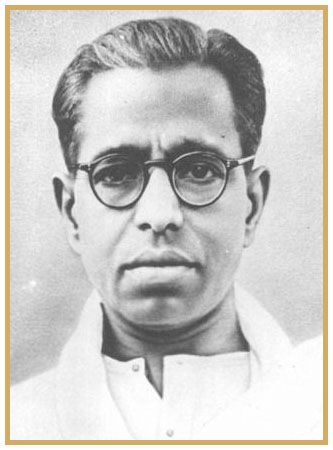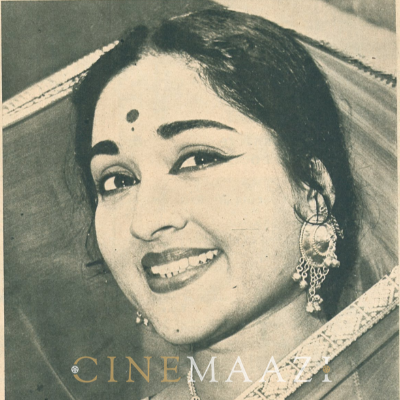Kalki Krishnamurthy

Subscribe to read full article
This section is for paid subscribers only. Our subscription is only $37/- for one full year.
You get unlimited access to all paid section and features on the website with this subscription.
Not ready for a full subscription?
You can access this article for $2 , and have it saved to your account for one year.
- Real Name: Ramaswamy Aiyer Krishnamurthy
- Born: 9 September 1899
- Died: 5 December 1954
- Primary Cinema: Hindi
- Parents: Thaiyal Nayagi and Ramaswamy Aiyar
- Spouse: Rukmani Krishnamurthy
Famous for Ponniyin Selvan: Part I (2022), Ponniyin Selvan: Part Two (2023) and the in-development animation series The Chola Chronicles, inspired by his hugely popular novels, Kalki Krishnamurthy—born Ramaswamy Aiyer Krishnamurthy—is an iconic writer and pioneer of modem Tamil literature and journalism. A poet and Indian Independence activist, he has penned over 120 short stories, ten novelettes, five novels, three historical romances, editorial and political writings and hundreds of film and music reviews. A liberal humanist, he chose as his pseudonym the name of Lord Vishnu’s final avatar for the destruction of the world – Kalki – as he desired to “destroy regressive regimes, express radical thoughts, take readers into new directions, and create a new era.” The vital sources of his multi-faceted genius were fired by his passionate interest in understanding the past, pride in our heritage, and the determination to work towards changes for a better future. This continues to makes his work relevant and appealing.
He was born on 9 September 1899 in Puthamangalam, Tamil Nadu to parents Thaiyal Nayagi and Ramaswamy Aiyar, an accountant. He quit school in 1921, just short of completing his Senior School Leaving Certificate, heeding the non-cooperation call of Mahatma Gandhi, post which he joined the Indian National Congress.
His induction into journalism was facilitated by his involvement with the freedom struggle. He started writing fiction stories in the scholarly journal Navaskthi in 1923 where he worked as a sub editor. He published his first book in 1927, when he was working under the tutelage of Thiru Vi Ka. He started working with C Rajagopalachari in Thiruchengode in Gandhi Ashram. He published Vimochanam along with Rajaji, a journal which propagated liquor prohibition. His involvement in the freedom struggle saw him imprisoned for six months during 1931. He later joined Ananda Vikatan, a popular Tamil magazine, and went on to serve as editor, before launching Kalki, the eponymous nationalist weekly. He would remain its editor until his demise.
A prolific writer, along with novels and short stories, political essays, and reformist propaganda, he penned travelogues, music and dance critiques, film reviews, biographies, scathing satire, humorous essays, songs, poems, film scripts, and also translations of Mahatma Gandhi’s The Story of My Experiments With Truth, among others.
Gaining immense popularity as a critic, witty author, political commentator and short story writer, he wrote under various pen names such as "Kalki", "Ra. Ki", "Tamil Theni" and "Karnatkam". Engaging in controversial debates on political, aesthetic and ideological issues, he used his writing talent to crusade for several causes. He contributed greatly to the renaissance of the performing arts in Tamil Nadu via his critical analyses and the candid honesty with which he promoted aesthetic values.
His Tamil language historical fiction novel Ponniyin Selvan has seen a massive revival with renowned filmmaker Mani Ratnam’s cinematic adaptation of what is regarded as one of the greatest novels of Tamil literature. It is acclaimed for its tightly woven plot, vivid narration, wit of the dialogue, and portrayal of the intrigues and power struggle of the Chola empire in the 10th-century. First serialised in the weekly editions of the Tamil magazine Kalki from 29 October 1950 to 16 May 1954, it was later integrated into five volumes in 1955. Spread over approximately 2,210 pages, it tells the story of the early days of Chola prince Arulmozhi Varman. Kalki is said to have visited Sri Lanka three times to gather information as well as inspiration for the novel. Such was its popularity that it is said to have raised the magazine circulation to a soaring figure of 71,366 copies. Its popularity continued in the modern era, winning fans and developing a cult following across generations.
The first part of Ratnam’s two-part action-adventure drama was released on 30 September 2022 as Ponniyin Selvan: I, while the second part released on 28 April 2023. Starring Vikram, Aishwarya Rai Bachchan, Jayam Ravi, Karthi and Trisha Krishnan, among others, the first part depicted the events that ensue as Vandiyathevan sets out to cross the Chola land to deliver a message from the crown prince Aditha Karikalan. Kundavai attempts to establish political peace as vassals and petty chieftains plot against the throne. Unrest grips the land as a long-tailed comet arrives, signalling a time of turmoil. Part two of the film follows Arulmozhi Varman on his journey to become Rajaraja I, the greatest ruler of the historic Chola empire of south India.
Kalki’s novels saw him employ the use of imagery, phrases from great poetry, and places and characters presented with their sensory details. To him, the sounds of the language were equally important as its sense. Critics even coined a name for the manner in which he wrote - Kalki-tamizh. It encapsulated his “effortless fluency, wit, and felicity of language combine to communicate his ideas in a striking and original manner.”
Amongst his prolific work, his historical novels which were serialised include Parthiban Kanavu (16 October 1941 – 10 February 1943) and Sivagamiyin Sapatham (1 January 1944 – 30 June 1946) both set against the backdrop of the Pallava dynasty, Ponniyin Selvan (29 October 1950 – 16 May 1954) set against the Chola dynasty, and Solaimalai Ilavarasi (1947) which was set against the Independence of India. His social novels include Kalvanin Kadhali (1937), Thyaga Bhoomi (1938–1939), Magudapathi (1942), Abalayin Kaneer (1947), Alai Osai (1948), Devagiyin Kanavan (1950), Mohini Theevu (1950), Poiman Karadu (1951), Punnaivanathu Puli (1952), and Amara Thara (1954). Among the approximately 40 short stories he has to his credit are Subhathraiyin Sagodharan, Otrai Roja, Theepiditha Kudisaigal, Pudhu Ovarsiyar, Vasdhadhu Venu and Amara Vazhvu, among others.
As a film and music critic, he wrote under the pseudonym "Karnatkam". He also penned lyrics for many songs, most of which were adapted into Carnatic music. He helped propel the Tamil Isai movement along with legendary vocalist MS Subbulakshmi. The movement worked at promoting Carnatic musical compositions which were, at that time, restricted to languages like Telugu and Sanskrit. The Sangeetha Kalasikhamani award was conferred on him by The Indian Fine Arts Society in 1953.
Kalki Krishnamurthy passed away in Chennai on 5 December 1954 aged 55 years from tuberculosis. A postage stamp was released in his honour as part of his centenary celebrations. The government of Tamil Nadu also announced the nationalisation of his works, enabling publishers to produce reprints. In his keynote address at the Tamil Writers’ conference, a few months before his demise, Kalki had spelt out his credo: “The test of good writing is whether it aids the unification of the human community or promotes discord… Any writing that militates against the ethical principles of love, empathy, justice and truth will bring harm to humanity. And any evil sprouting in any section of society will have an irreversible impact on the whole world.”
Multiple biographies of Kalki exist, namely Ponniyin Puthalvar by Sunda, Amarar Kalki, and Oray Roja.
References
https://www.amazon.in/Kalki-Krishnamurthy/e/B014GLNR94%3Fref=dbs_a_mng_rwt_scns_share
https://www.kalkibiography.com/about-kalki/
https://www.cnbctv18.com/india/who-is-kalki-krishnamurthy-the-author-of-ponniyin-selvan-14704101.htm
Image courtesy: https://www.amazon.in/Kalki-Krishnamurthy/e/B014GLNR94%3Fref=dbs_a_mng_rwt_scns_share









.jpg)



